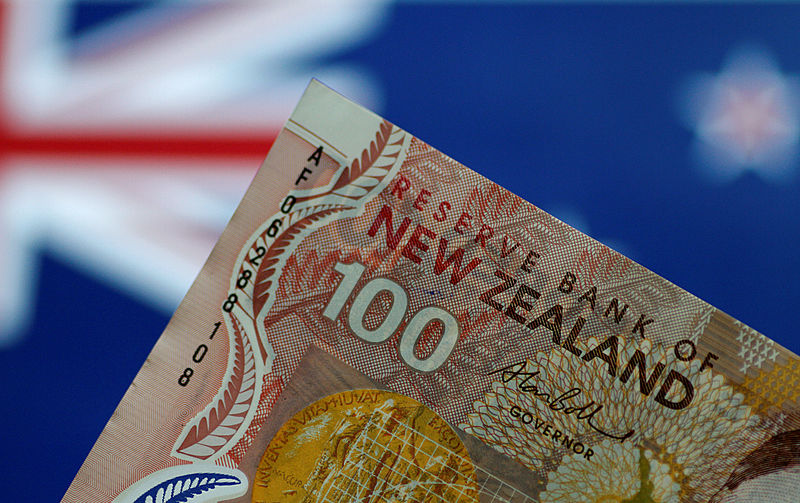By Wayne Cole
SYDNEY (Reuters) - Analysts still maintain a remarkably sanguine outlook for the Australian and New Zealand dollars in the latest Reuters poll, even as both carve out multi-year lows amid escalating trade wars and collapsing bond yields.
The median one-month forecast for the Aussie was trimmed a cent to $0.6800 , but it was still seen at $0.7000 in six months and $0.7200 on a one-year horizon.
That seems like a brave call given the Aussie hit a decade-low of $0.6678 this week, before finding a sliver of support at $0.6800.
Fears that the protracted Sino-U.S. trade dispute will tip the world toward recession has seen markets wager the Reserve Bank of Australia (RBA) will have to cut rates at least twice more to 0.5%, and perhaps adopt quantitative easing.
As a result, yields on 10-year bonds (AU10YT=RR) broke under 1% for the first time ever this week, upending the Aussie's traditional status as a high-yielding currency.-
Just as importantly, China has let its yuan depreciate to offset the pain from tariffs and investors are responding by shorting the Aussie as a liquid proxy.
"These latest trade developments are a game changer for our AUD and NZD views," said Ray Attrill, head of FX strategy at National Australia Bank, noting the Aussie has tended to move in lockstep with the yuan in recent weeks.
"Premised on China 'allowing' the yuan to trade to the 7.35-7.40 per dollar area by year-end, AUD/USD is now seen falling to the $0.6500 area in coming months," he said.
Similar forces were impacting on the New Zealand dollar , which crumbled to a three-and-a-half year trough of $0.6378 this week before steadying a little at $0.6490.
Many analysts seemed to think it had found a floor, with the median poll forecast being $0.6500 out to three months, then $0.6600 for six months and $0.6777 on a one-year horizon.
It is unlikely the Reserve Bank of New Zealand (RBNZ) would agree with that call given it was clearly aiming to lower the currency when cutting rates by a surprisingly steep 50 basis points on Wednesday.
Policymakers even raised the specter of taking rates below zero, citing the need to match the easing done by other central banks.
In response, yields on 10-year bonds yields (NZ10YT=RR) fell a massive 28 basis points to 1.11% as shocked investors assumed rates would stay super-low for years to come.
"Given the proximity of rates to zero, thoughts and preparations regarding unconventional monetary policies in NZ are starting to intensify," noted Westpac analyst Imre Speizer.
"What is immediately apparent is that in all cases there is potential for the NZD exchange rate to fall."

(Polling by Sarmista Sen and Nagamani Lingappa; Editing by Richard Borsuk)